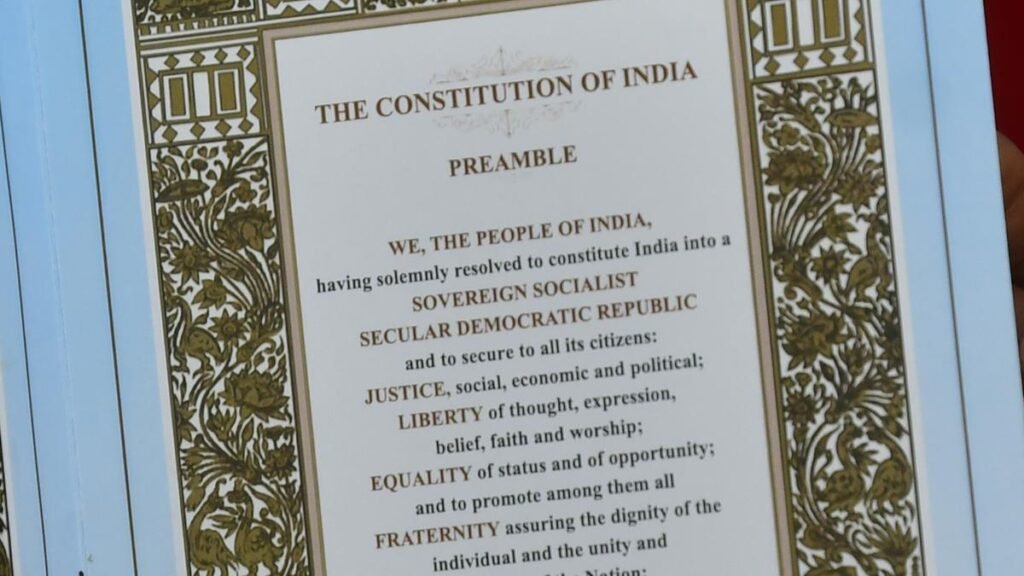
Supreme Court Upholds ‘Socialist, secular’ Inclusion in Indian Constitution Preamble
- The Supreme Court upheld the inclusion of ‘socialist’ and’secular’ in the Preamble of the Constitution.
- The ‘secular’ denotes a Republic that respects all religions, while ‘socialist’ represents a Republic dedicated to eliminating all forms of exploitation.
- The order was based on petitions filed in 2020 challenging the validity of the inclusion of’secular’ and’ secular’ in the Preamble through the 42nd Constitution Amendment in 1976.
- The court found the petitioners’ arguments manifest and found the motives of the petitions “questionable.”
- The court held that the Preamble was an inalienable part of the Constitution and the Parliament had an unquestionable power to amend the Constitution under Article 368.
- The court confirmed the retrospective amendment to the Preamble, stating the date of adoption would not curtail the power under Article 368.
- The court emphasized that the Constitution is a “living document” and open to changes according to the needs of the time.
- The court clarified that ‘socialism’ in the Indian context means the state’s commitment to function as a welfare state and ensuring equality of opportunity.
Background:
- The 42nd Amendment of 1976 introduced the terms’secular’ and’socialist’ into the Preamble of the Indian Constitution.
- Petitioners filed in 2020 argued that the retrospective application of these terms was unjust and restricted the economic policies of the elected government.
- The Supreme Court dismissed the petitions as lacking merit, noting significant flaws in the arguments.
Secularism:
- Defined as a separation of religious institutions from state institutions.
- Can be categorized into “hard” and “soft” varieties.
- Indian philosophy of secularism is related to “Sarva Dharma Sambhava,” meaning equal respect to all religions.
- Indian Constitutional Provisions Regarding Secularism include freedom of conscience, religious affairs management, tax exemptions, religious instruction attendance, discrimination prohibition, equality of opportunity in public employment, protection of minority languages, and rights of all minorities to establish and administer educational institutions.
Socialism:
- Advocates for collective or governmental ownership and administration of the means of production and distribution of goods.
- Types of Socialism and India’s Approach include Democratic Socialism and Communist Socialism.
- India follows a Democratic Socialist model, with the government playing a key role in welfare and economic planning, but private enterprises encouraged to contribute to growth and development.
Types of Socialism:
- Democratic Socialism: Balances social welfare with private sector participation.
- Communist Socialism: Advocates for state ownership of all means of production.
Type Followed in India:
- Follows a Democratic Socialist model, with government involvement in welfare and economic planning.
Constitutional Provisions:
- Preamble defines India as a “Socialist” nation.
- Mandates the State to secure a social order for welfare promotion.
- Directive Principles of State Policy (Part IV) incorporate socialist principles.
Constitutional Amendments:
- 42nd Amendment (1976) added terms ‘Socialist’ and ‘Secular’ to the Preamble.
- 44th Amendment (1978) restored civil liberties and reduced State power.
- Basic Structure Doctrine established core values of the Constitution, including’socialism,’ cannot be altered by any amendment.















